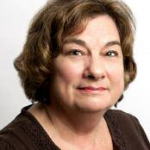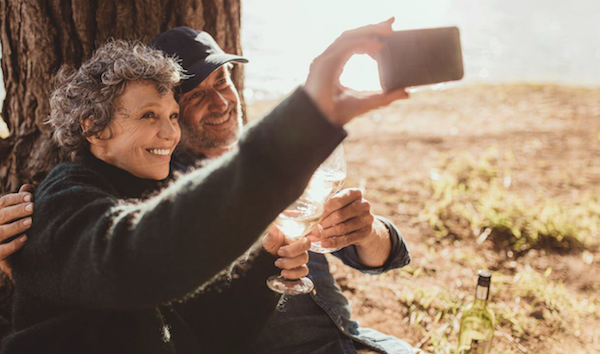We Were Older Then
by Peggy Edwards
I am often asked,“How old is older?”The answer is not a chronological number, although data-collecting organizations like Statistics Canada define “older Canadians” or “seniors” as aged 65 and over. Being “older” depends on many things: where you live; your life experiences; your current health; and your point of view. But three things appear true:
No. 1 In their 60s and 70s, most boomers are “younger” than the previous generation. In Canada, boomers are a privileged generation who grew up in a time of relative peace and prosperity with opportunities for choice, freedom, mobility, higher education, employment and improvements in nutrition, living conditions and health care. As a result, we are healthier and appear younger than previous generations at a specific age. Some people call this down-aging. For example, the “old 60 is the new 70” (at age 70 boomers think and act like the previous generation did at age 60).
Age is nothing but a number
Delaying retirement is also considered a sign of down-aging. Due to a number of factors, including better health and laws which struck down mandatory retirement at age 65, boomers are increasingly working longer than their parents.This is especially true for women who entered the workforce en masse in the ‘70s and ‘80s and are less likely than men to have enough savings to retire early.
No. 2 We are living longer. Every second, two people in the world celebrate their 65th birthday. In Canada, most men go on to live an additional 19 years (to age 84), and most women go on to live an additional 22 years (to age 87).These extra years of life are nothing short of a revolution—a longevity revolution that is changing the nature and make up of Canadian society. Longer living provides advantages and challenges. Increasingly, experts say we need to look at the question of quality of life over quantity of years.The goal is to live a long life in relatively good health, to delay illness and disability to a short time in later life, and to enjoy a “good death” at an advanced age.
No.3 Boomers are refuting the myths and stereotypes about getting older. These myths reinforce outdated, ageist perspectives on what getting older means for the individual and for society.
One example is the myth that old people are a burden on society and the huge boomer demographic will bankrupt our economy and our health-care system. Some of the best research shows that, although health-care costs will rise as baby boomers age, the impact will be modest in comparison to that of other cost drivers, such as inflation and technological innovation.
Older people make a positive contribution to our economy and our society. Like younger people, they shop, use services (which employ people) and pay taxes. They volunteer and provide informal care to others—care that was estimated to be worth the annual market value of almost $3.9 billion (in 2007 dollars). One can only imagine what would happen to our economy and work productivity if, suddenly, no grandparents were available to look after grandchildren. Older Canadians also give generously.They often help their adult children with housing and their grandchildren with education fees.They make more charitable donations per capita than any other age group.
This is not to deny aging or the knowledge that growing older brings some declines, heartaches and trials. How can your heart not break when you lose a loved one? Or when a child suffers? Or when arthritic pain stops you from doing things you love to do or violent world events shatter your faith in humanity? As Betty Davis famously said,“Old age ain’t no place for sissies.”
Two of my other favourite quotes about growing older are:
Age is an issue of mind over matter. If you don’t mind, it doesn’t matter.
Mark Twain
Grow old along with me! The best is yet to be.
Robert Browning
Robert Browning suggests it is possible to enjoy our later years in a way that exceeds our expectations, and that we are on the journey of a lifetime together. Mark Twain’s view is we can enjoy our older years if we practise mind over matter.Who cares if my hair has turned grey and years of laughter are forever etched in deep lines in my face? Who cares if I dance alone at midnight or defiantly protest an injustice I believe is wrong. I’ve earned the right to decide what really matters. Age, in many ways, has set me free.
The trick is to take advantage of our opportunities and good fortune while gracefully accepting the life transitions and body changes that inevitably accompany aging.
Our parents and the generation before them went through many of the same later-life transitions: retirement from work; marriage; divorce; separation or falling in love again in later life; becoming a caregiver for loved ones; health and mobility challenges; losing one’s driver’s licence; deaths of parents, a spouse, other family members and friends; becoming grandparents; and end-of-life care.
But in the 21st century, the conditions surrounding most of these transitions may be vastly different. New technologies (including online dating, communication devices and amazing advances in medical treatments); a decline in the influence of religion in daily life; globalization and the mass movement of people to cities; as well as changes in family structures, employment and access to pensions all mean our experience is bound to be different from generations before us.
It also points to the importance of planning now for how we are going to deal with these later-life transitions. I have it in my agenda to talk with my adult children and friends about what I want, what I think I will need and what I need to do to prepare. I plan to write it all down and update my Will. But sometimes feeling young gets in the way of doing all these good things.
When I asked my 92-year-old friend if he felt old, he said: “Heck no!” Then with a big smile he said he was like George Burns.“I don’t feel old. I don’t feel anything until noon. That’s when it’s time for my nap.”
At age 68, I know I am getting older, but I don’t feel old yet. Do you? ■
I’m looking forward to hearing your ideas on topics for this column and comments about what you read here.What does getting older mean to you? What’s your favourite quotation about old age? Let’s start a collection. Write to me at epeggy1948@gmail.com.
 Peggy Edwards is a well-known writer and speaker on aging and health and is co-author of The Healthy Boomer: A No Nonsense Midlife Health Guide for Women and Men.
Peggy Edwards is a well-known writer and speaker on aging and health and is co-author of The Healthy Boomer: A No Nonsense Midlife Health Guide for Women and Men.







